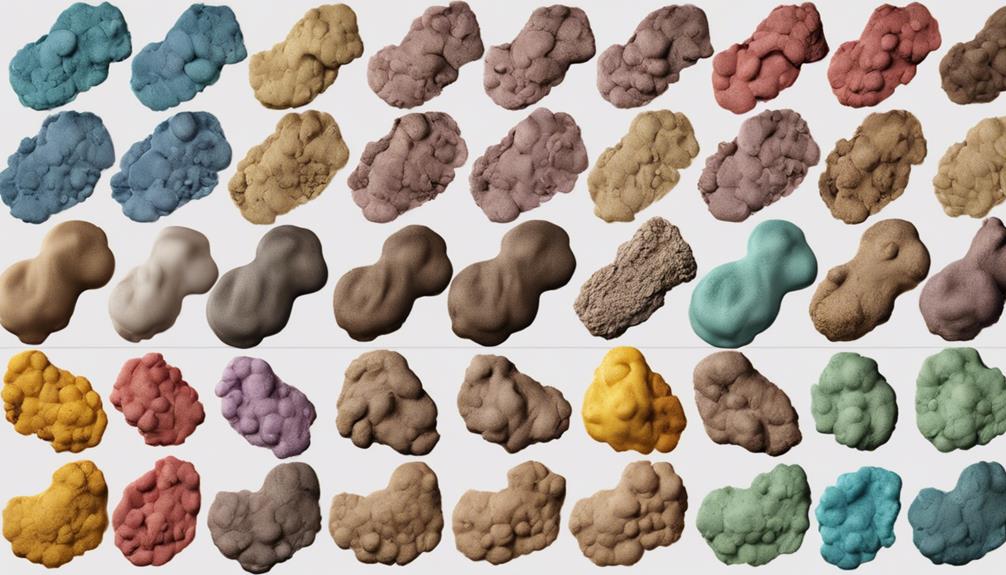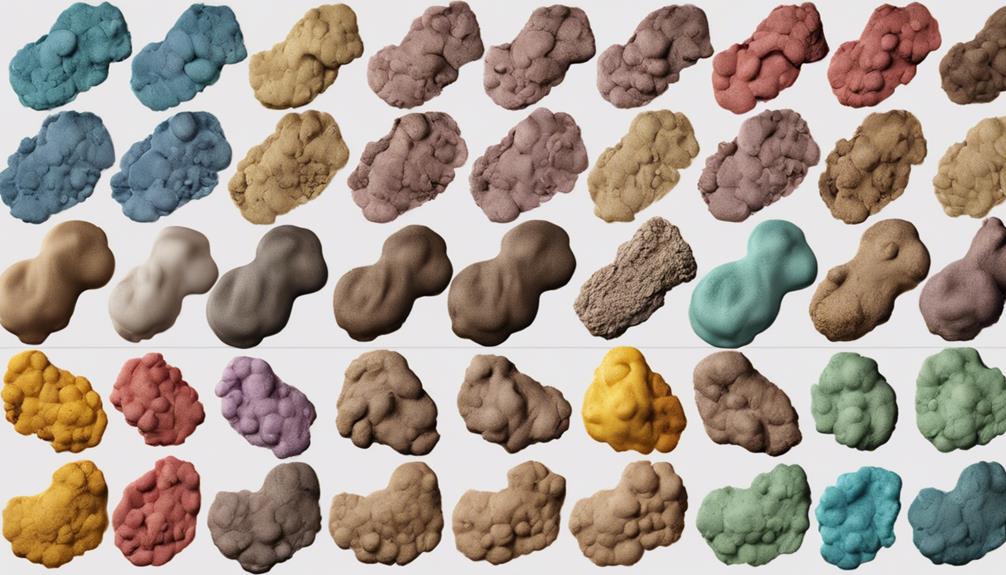When it comes to newborn poop, the concept of 'after every feed' can be a bit perplexing for many new parents.
The frequency, color, texture, and even smell of your baby's bowel movements can provide valuable insights into their health and well-being.
Understanding what is considered normal in this aspect can help guarantee parental concerns and make sure the baby is thriving as expected.
Let's explore the intricacies of normal newborn poop patterns and what they might reveal about your little one's digestive system.
Key Takeaways
- Newborn poop frequency varies, but regular bowel movements indicate a healthy digestive system.
- Color changes in poop reflect diet and health status, aiding in monitoring the baby's well-being.
- Texture changes in poop show the digestive system adapting to new nutrients and potential issues like constipation.
- Monitoring smell, color, consistency, and content of newborn poop helps assess overall digestive health and detect any abnormalities.
Frequency of Newborn Poop
Newborn babies typically have one or more bowel movements daily, with some infants producing up to five dirty diapers a day during the first two weeks of life. As a parent, this frequency of diaper changes might seem overwhelming, but this is a positive sign that your baby's digestive system is functioning well.
For breastfed newborns, the frequency of bowel movements can be even higher, as breast milk is easily digested, leading to more frequent pooping. This is normal and showcases that your baby is getting the essential nutrients they need for healthy growth and weight gain.
Understanding the regularity of your baby's poop can also give you insights into their well-being. While some babies may poop after every feed, others might go a couple of days without a bowel movement. It's crucial to monitor your baby's weight gain and overall demeanor, as well as making sure that they're producing an adequate number of wet diapers, to make sure they're getting enough milk.
Color Variations in Newborn Poop

Observing the spectrum of hues in a baby's diaper contents can offer valuable insights into their digestive health and overall well-being. Meconium, the first stool, is typically black or dark green, changing to mustard yellow or light brown for breastfed babies and yellow to tan for formula-fed infants.
Green poop in newborns is quite common and can be influenced by factors like diet and digestion. Monitoring these changes closely is important for early detection and intervention if needed. Being aware of the range of colors in newborn poop helps caregivers track the baby's well-being and make sure their little one is healthy and thriving.
Texture Changes in Newborn Poop
Shifting from meconium to a mustard yellow or yellow-green color, newborn poop undergoes noticeable texture changes that can provide insight into their digestive health. For breastfed babies, stool is typically seedy, soft, and runny in texture due to the composition of breast milk.
Changes in diet, whether moving from breast milk to formula or introducing solid foods, can lead to variations in newborn poop texture. It's important to pay attention to the consistency of your baby's stool, as hard, pellet-like poop may indicate constipation, while mucus in newborn poop can be normal and doesn't always signal a problem.
These adjustments in stool texture are vital indicators of your baby's digestive system adapting to different nutrients. If you notice persistent abnormalities in texture or your baby seems uncomfortable, consulting a healthcare provider can help address any concerns promptly.
Understanding these variations in newborn poop texture aids in monitoring your baby's overall health and well-being.
Smell Indicators in Newborn Poop

Detecting variations in the smell of your baby's poop can provide valuable insights into their digestive health. Normal breastfed newborn poop usually has a mild, sweet smell, while formula-fed newborn poop may have a stronger odor. However, a sudden foul-smelling poop can be a red flag for digestive issues or food intolerance. It's important to monitor your newborn's poop smell as changes could indicate potential health concerns. By paying attention to the odor of your baby's poop, you can help detect any issues early on.
If you notice persistent foul-smelling poop or a drastic change in smell, it's important to seek a doctor's evaluation. While some variations in smell are normal, certain odors can signify digestive issues that require attention. Trust your instincts as a parent and don't hesitate to consult with a healthcare provider if you have concerns about your newborn's poop smell. Your vigilance can play an important role in maintaining your baby's digestive health.
Signs of Healthy Digestion in Newborn Poop
To understand the health of your newborn's digestive system, it's important to observe the signs of healthy digestion in their poop.
- Color: Breastfed babies typically have mustard yellow poop, while formula-fed babies tend to have tan-colored stools. These variations are normal and indicate proper digestion.
- Consistency: For breastfed infants, the stool should be soft and seedy, reflecting the easy digestibility of breast milk. Formula-fed babies may have slightly firmer but still soft poop, showing their digestive system is functioning well.
- Odor and Contents: Healthy newborn poop doesn't usually have a strong odor. It shouldn't contain blood or mucus, which can be indicators of digestive issues.
Monitoring the frequency, color, consistency, and odor of your baby's bowel movements can offer valuable insights into their digestive health and overall well-being. By paying attention to these factors, you can better understand your baby's digestive system and make sure they're thriving.
Frequently Asked Questions
What Does It Mean When Baby Poops After Every Feeding?
When baby poops after every feeding, it signals a healthy digestive system. It's common in breastfed infants due to easily digested breast milk. This frequent bowel movement routine helps eliminate waste and prevent constipation.
What Is a Normal Poop Schedule for a Newborn?
What's a normal poop schedule for a newborn? It varies! Newborns poop at varying frequencies, from several times a day to once every few days. Monitoring their poop helps make sure they're healthy and well-nourished.
When Should I Worry About My Baby Pooping Too Much?
If your infant is defecating excessively, especially with watery stools, it could indicate a gastrointestinal concern. Seeking medical advice promptly is vital. We're here to support you through any concerns about your baby's health.
What Is the Normal Consistency of Newborn Poop?
We, as parents, understand the concern about newborn poop consistency. It varies, from watery to paste-like, influenced by diet. Meconium, the first poop, is dark and sticky. Changes may indicate dietary shifts or health concerns.
Conclusion
To summarize, newborn poop is a fascinating topic that can provide valuable insight into your baby's health and digestion. Remember, what goes in must come out, and keeping an eye on your little one's poop can help you stay informed and proactive.
So, next time you change a diaper, take a moment to appreciate the important clues that your baby's poop can provide. Happy diaper changing!









